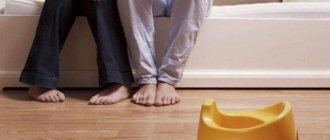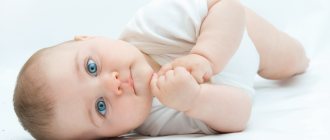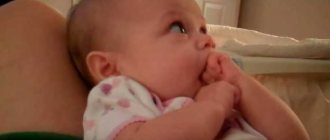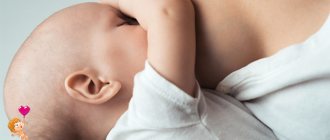Today in medicine, enuresis or urinary incontinence is considered not a disorder, but a stage of maturation of the nervous system, including control over physiological functions.
Due to the variety of causes and factors that provoke urinary incontinence, children's doctors of various profiles are involved in the treatment of enuresis: urologist, neurologist, nephrologist, psychiatrist and others.
Until about 2-2.5 years of age, the child relieves himself unconsciously, since urination is a reflex. At a certain level of filling of the bladder, nerve impulses are sent from it to the brain about the need to empty.
However, already at the age of 4 years, children begin to control the urge of the bladder, adequately assessing signals about the degree of its fullness. This skill allows parents to teach their child to relieve themselves in the potty (later in the toilet) as needed or in advance, for example, before a walk.
Monitoring bladder function, and therefore the appearance/absence of nocturnal enuresis, depends on the individual characteristics of the child:
- circadian rhythm of hormone secretion, especially vasopressin;
- genetic properties of the nervous system (maturation rate, plasticity, etc.);
- urological disorders (structural anomalies, diseases);
- the presence of delayed development of the nervous system, etc.
If urinary incontinence occurs in children after 4-4.5 years of age, it is necessary to consult a specialist, since enuresis can be part of a symptom complex of various disorders and diseases. According to WHO statistics, bedwetting occurs in 10% of children under the age of 5 years, mostly boys.
The success of enuresis treatment is based on timely consultation with a doctor, careful adherence to all his recommendations and the help of parents (we will consider the rules of parental behavior below).
Signs indicating a mandatory visit to a pediatrician are:
- difficulty in controlling urination in a child, both during the day and at night;
- relapse of enuresis after a long “dry period”;
- frequent urge to urinate;
- frequent thirst, especially against the background of swelling of the legs;
- urinary incontinence after reaching 5 years of age, etc.
Modern medicine offers a wide range of methods for treating enuresis, but the best results are achieved with an integrated approach. Typically, treatment for urinary incontinence is long-term, but has a favorable prognosis. According to clinical observations, only 1% of cases of enuresis recur in adulthood.
What is enuresis in children?
Enuresis is persistent involuntary urinary incontinence in a child over 5 years of age (nighttime, daytime, or combined). Nocturnal enuresis is urinary incontinence during sleep, at an age when a child is expected to fully develop a mechanism for controlling bladder function. Daytime enuresis is urinary incontinence while awake, suggesting neurogenic bladder dysfunction.
Experts identify the following main types of enuresis:
- primary (persistent), bedwetting, which occurs due to a delay in the formation of a physiological reflex (that is, the child has been peeing since childhood and always);
- secondary (acquired), developing as a result of numerous factors and manifesting itself at any time of the day (the formed conditioned reflex disintegrates);
- complicated, appearing against the background of serious somatic or mental illnesses (urogenital infections, diabetes mellitus, etc.);
- uncomplicated, in which there are no deviations from the norm in health and development;
- neurosis-like, developing as a result of a neuroinfection or a malformation of the intrauterine development of the child;
- neurotic, characteristic of children with an unstable nervous constitution and appearing in response to a stressful situation.
Enuresis is diagnosed according to the following criteria:
- frequency of involuntary or intentional urination occurs at least 2 times a month in children under 7 years of age;
- frequency of involuntary or intentional urination at least once a month in children over 7 years of age;
- duration of urinary incontinence more than 3 months;
- absence of objective reasons for urinary incontinence (developmental anomalies, psychopathology, etc.).
What not to do if your child has enuresis
You can stop a child from peeing at night only with a gentle and patient approach. Enuresis is not something to joke about or ridicule; it is a serious problem. You can fight it using complex methods that will not traumatize your fragile psyche. Under no circumstances should you:
- scold your child for wet underwear. He didn’t squirt at night on purpose and not because he wanted to take revenge - he himself was deeply unpleasant about the situation;
- laugh. When a child suffers from incontinence, you must under no circumstances pretend that it is amusing. Older children in the family should be prohibited from laughing at their younger brother or sister;
- focus too much attention on the problem. First of all, a child should feel comfortable in his own family: he needs to see that he is loved and understood, and will be ready to help.
Tips on how to stop your child from peeing in bed will help you effectively deal with the problem.
What causes urinary incontinence in a child?
Urinary incontinence can develop in a child due to physiological and neurological reasons.
The main reasons for the development of enuresis are:
- side effects of medications;
- urogenital infections;
- stress;
- endocrine dysfunctions;
- malformations of the urinary system;
- obstruction (narrowing) of the upper respiratory tract;
- epilepsy attacks;
- allergic reactions;
- viral damage to the nervous system, etc.
A history of enuresis in at least one of the parents increases the risk of the disorder in the child by 40%.
Prepare before potty training your child to wake up at night
There are a few things you should do before teaching your child to potty at night. Getting up at night will be much easier if you think about what obstacles may arise. Our tips on how to potty train at night will help you prepare for this process in advance and make nighttime potty trips more comfortable:
- Place a water-repellent mattress on your child's bed.
- Place the potty next to your baby's bed if the toilet is far from his room.
- Leave a light on the stairwell if you have several floors, or just a portable lamp in case you move around the apartment to the toilet.
- Before going to bed, be sure to teach your child to go to the toilet.
- Ask your child to use the toilet as soon as he gets up in the morning.
- Prepare a spare set of bedding and pajamas in advance to be prepared for emergencies.
Which doctor treats enuresis in children?
It is believed that qualified medical care is needed if urinary incontinence occurs more often than once every 21 days (in the interval between dry periods the conditioned control reflex does not have time to take hold).
As we have already mentioned, the problem of enuresis in children is dealt with by a multidisciplinary team of doctors. However, first of all you should make an appointment with your pediatrician. This specialist, based on complaints and analysis of family history, will refer the child for general tests (urine and blood tests, ultrasound of the kidneys and ultrasound of the bladder with determination of residual urine) and for consultation with specialists.
Depending on the cause of enuresis, the following specialists are involved in the treatment of the disorder:
- pediatric urologist, whose competence is the health of the urinary system. He may prescribe additional studies to clarify the nature of urinary incontinence (cystoscopy, or uroflowmetry);
- pediatric nephrologist, since the disorder may be caused by improper structure and functioning of the kidneys;
- a pediatric neurologist who identifies the absence of disturbances in the functioning of the spinal cord and brain;
- a child psychologist or psychotherapist who corrects the child’s psychological state;
- physical therapist or reflexologist;
- a pediatric gynecologist or andrologist, since the appearance of enuresis is often associated with the presence of infections of the urogenital tract or abnormalities in the structure of the genital organs.
How to stop a child from peeing in bed at night: tips for parents
Each child's relationship with the potty develops differently. For some children, parting with diapers goes unnoticed. Their mothers do not need to make any special efforts to potty train their baby - everything happens naturally, by itself.
Other children wear diapers for a long time, and then cannot learn to control the urge to urinate.
Of course, you have a reasonable question: is this normal? And how to wean a child from peeing in bed at night , for example, he goes to the potty without fail?
A little about potty training
Potty training is done gradually. In this article I will give only a general outline. I will not go into detail about all the important aspects of a child’s acquaintance and mastering of his body in order to quickly and easily master the potty.
If you have difficulties in this matter, and want to analyze each stage in detail, then start with the online seminar How to potty train a child>>>
We begin to introduce the child to the potty around 1–1.2 years old. At this time, the pot just appears at home. Read more in the article At what age should a child be potty trained>>>
How to treat urinary incontinence in children?
The tactics and composition of treatment for urinary incontinence in children depend on the etiology of the disorder. Therapeutic and preventive measures to eliminate enuresis in children are varied and are mainly carried out on an outpatient basis (with the exception of treatment of pathologies of the urinary excretory organs).
The most popular medical treatment methods for urinary incontinence in children are:
- a course of medication using hormonal drugs, psychostimulants or sedatives;
- non-drug course (psycho- and physiotherapy, therapeutic exercises);
- regime events.
The integrated use of treatment methods makes it possible to eliminate the influence of provoking factors of the disorder and significantly increase the effectiveness of treatment procedures.
In order to improve and consolidate the results of therapy, parents must adhere to the following rules of conduct:
- provide comprehensive psychological support during treatment;
- do not punish or scold your child for episodes of urinary incontinence;
- do not discuss the problem with strangers in the presence of the child;
- do not put on diapers at night (but use them on the road, at a party and for a walk);
- observe the daily routine and put the child to bed no later than 9 pm;
- put the child on the potty (toilet) before bedtime;
- avoid overexcitation and overwork before bedtime (active games, watching cartoons, etc.);
- do not leave him alone in a dark room;
- avoid hypothermia;
- do not wake up or lift the child to the toilet during deep sleep, as this interferes with the rest of the nervous system and can aggravate the situation;
- limit the intake of liquids and liquid foods before bedtime (about 3-4 hours before bedtime).
Another effective measure in eliminating enuresis is to arrange for children to sleep on a hard surface with an elevation in the area under the knees (a bolster of the appropriate size). During the treatment process, it is advisable to optimize the diet and not give the child foods that have a diuretic effect (chocolate, watermelon, cocoa, etc.).
How to stop a child from peeing in bed at night: tips for parents
Every child goes through a period of wet sheets. It is accepted as the norm that by the age of three, maximum four years, the body already knows how to control this process and the child wakes up to go to the potty. But what to do if wet sheets appear again when the baby has already learned to sleep without “accidents”? How to stop a child from peeing in bed at night?
Alarm bells
The problem of uncontrolled night urination can have two roots: physiological and psychological. The first includes various diseases.
Here you cannot do without the help of doctors: you need to undergo the necessary examinations, and then a course of treatment. The psychological aspect is associated with a malfunction of the nervous system.
It can be caused by many reasons, so it is important to identify and eliminate the specific source of the problem. Often it is impossible to do without a qualified child psychologist.
When should parents be wary? There are several cases when wetting the bed is not the norm:
- by the age of 4, the baby continues to “pour” in his pants even during the day (4–5 years is the extreme age limit when children stop wetting the bed during sleep);
- if the child slept “dry” for a long time, and then began to wet the sheet (we are talking about systematic incontinence, and not about rare “flaws” caused by the child being overexcited or drinking a large amount of liquid at night);
- if even after 7 years the child continues to pee at night.
In all these cases, there is definitely something to worry about. It is imperative to show the child to specialists. This could be a pediatrician, urologist, neurologist, endocrinologist, psychologist, psychiatrist - it all depends on the situation.
If your child has any concomitant symptoms (we will discuss them later), contact your doctor. If you do not notice any visible symptoms, go to a psychologist first. Perhaps the baby has experienced psychological trauma, severe stress or fear.
Physiological causes of enuresis
Actually, the disease itself can be primary and secondary. Primary enuresis is expressed in the fact that the baby does not control his urges either at one year, or at 3, or at 5 years. Secondary is detected in children 5–10 years old who have promptly stopped peeing at night and have not done so for a long time. And then suddenly they “got back to their old ways” again.
Intermittent nocturnal enuresis in a 9-year-old child
Julia, Yelets
June 25, 2020
Good afternoon
The child does not wake up at night to go to the toilet. From the age of 5, she was observed by a neurologist. The doctor decided that this was either hereditary (my husband’s cousin up to a certain age, it had never been observed in anyone else before. Maybe it was passed on to him from his father. What does that have to do with us?), or associated with hypoxia during childbirth. They prescribed Pantogam, Driptan, limited drinking before bed + woke me up at night to go to the toilet. This treatment made it even worse. If without taking medications the number of wet nights per month was minimal (1-3 times), then with pills this happened every night. We stopped taking the pills and everything went back to normal. We thought it would outgrow because there were long dry breaks. It happened for six months. Then again, it is unclear for what reasons nighttime incontinence occurred. They boiled it down to fatigue and sound sleep. Now the child is 9 years old. And sometimes this happens. This worries me. They did an EEG of night sleep. Transcript below. EEG in a state of passive and active wakefulness. General characteristics of the background EEG: In the analyzed curve there are individual artifacts associated with motor activity during the examination, in the frontal pole leads there are oculomotor artifacts. When analyzing a curve free of artifacts in wakefulness with eyes closed: - in the parieto-occipital leads a regular pattern is recorded , moderately disorganized alpha rhythm, frequency 7.0-9.5 Hz (dominant frequency is about 8.5 Hz), amplitude up to 50 - 70 µV, with regular zonal distribution, periodically smoothed.. In the occipital leads in the alpha row rhythm, waves of theta and delta ranges, and polyphasic potentials, single waves of a pointed configuration are recorded in moderate quantities. -beta activity is moderately expressed, recorded in the form of groups of waves with a frequency of 16-18 Hz, amplitude up to 8 - 19 μV, mainly in the frontal parts of the hemispheres, without asymmetry. -Slow-wave activity of the delta range is recorded diffusely, with a maximum in the central parts of the hemispheres, without significant interhemispheric asymmetry, with an amplitude of up to 150 - 230 µV, less often individual waves up to 300 µV, oscillations with a shorter period are superimposed on the slow waves. Theta activity is recorded diffusely, with a low index. Photostimulation With fixed frequencies from 4 to 24 Hz No photoparoxysmal response was recorded. During a functional test with HV:. There was a smoothing of zonal differences, an increase in disorganization of the alpha rhythm, an increase in the number of polyphasic potentials in the alpha rhythm series, an increase in the amplitude of bursts of theta activity was noted. EEG sleep. The first stage of sleep is characterized by flattening, fragmentation and reduction of the basic rhythm with a quantitative increase in slow waves in the theta and delta ranges with an emphasis in the frontotemporal regions, and the appearance of vertex potentials. The second stage of sleep is characterized by the appearance of “sleep spindles” - bursts of rhythmic activity with a frequency of 12-14 Hz, an amplitude of up to 30 μV with an emphasis in the central temporal regions and K-complexes in the form of diffuse diphasic and polyphasic potentials of fronto-central and vertex accentuation with an amplitude of up to 150 - 240 µV. Physiological sleep patterns are recorded both in isolation and in combination with each other, periodically appearing asymmetrically, with variable hemispheric amplitude accentuation. The delta sleep stage is characterized by a gradual increase in the representation of diffuse delta activity up to 50%, as well as a quantitative decrease and slowdown in the physiological patterns of the second stage of sleep. Fragmentary awakenings occur periodically, characterized by an EEG pattern of active and passive wakefulness. Awakening was not accompanied by paroxysmal phenomena. Changes in BEA of an epileptiform nature were recorded, in the form of single and rhythmic bilaterally synchronous flashes of sharp and pointed slow waves, “OMV” complexes, peak-von complexes with an amplitude of up to 250 μV with an emphasis in amplitude in the frontal-central-temporal regions. In general, the index of epileptiform activity is very low! Conclusion. — Moderate diffuse EEG changes. — Sleep is differentiated by stage. Physiological patterns are preserved. — BEA changes of an epileptiform nature were recorded, in the form of single and rhythmic bilaterally synchronous flashes of sharp and pointed slow waves, “OMV” complexes, peak-von complexes with an amplitude of up to 250 μV with an emphasis in amplitude in the frontal-central-temporal regions. — Epileptic seizures and their EEG patterns were not recorded during the study. What follows from this conclusion? Do I need to adjust my sleep phases? Or is sleep not the cause of enuresis and we need to look for another cause? Chronic diseases:
no
The question is closed
night EEG
nocturnal enuresis
Diagnostics
A teenage child is not always able to bring his problem to public attention and decide to visit a doctor.
His problems are first dealt with by a pediatrician who, if necessary, refers the patient to such specialists as:
- Pediatric urologist,
- Endocrinologist,
- Neurologist,
- Psychiatrist.
To accurately assess the health status of a teenager, a full examination is prescribed:
- General blood and urine analysis;
- Ultrasound of the bladder, kidneys;
- Bacterial culture of urine;
- X-ray of the pelvic organs;
- Cystoscopy;
- Assessment of bladder reservoir function.
Based on the diagnostic results, the doctor determines the treatment tactics for nocturnal enuresis.
Treatment
There are a large number of ways to help improve a teenager’s health:
- Drug therapy;
- Psychotherapy;
- Physiotherapeutic methods;
- Acupuncture;
- Diet therapy;
- Laser therapy;
- Regular methods of organizing measured sleep and nutrition.
Psychotherapy cannot be the only method of treating urinary incontinence, although in many cases of neurotic forms of pathology it is very effective.
Medicines are prescribed depending on the cause of enuresis:
- Nootropic drugs (Semax, Piracetam, Glycine, Phenibut, Instenon) for the treatment of the neurotic form of the disease;
- Antibiotics for the treatment of genitourinary tract infections;
- Tranquilizers (Radedarm, Eunoktom) to stabilize the depth of sleep, Melipramine, Sidnocarb, Amitriptyline in case of resistance to previous drugs;
- Adiurecrine to inhibit the process of urine formation.
To prevent nocturnal enuresis, limit fluid intake during the day. 7 hours before bedtime, limit the consumption of liquid food and drinks; immediately before bedtime, the teenager eats a salted piece of rye bread.
Physiotherapeutic procedures include electrophoresis, magnetic therapy, nitrogen, salt, pine baths, circular shower, galvanization. Good results are obtained by using physical therapy, which strengthens the pelvic muscles and bladder sphincter, and therapeutic massage courses.
The child’s relatives are advised to create a positive atmosphere in the family and eliminate traumatic situations.
Other treatments
In addition, the following areas in the treatment of enuresis can be distinguished:
- Effective treatment of enuresis with bedwetting alarm clock
- Method of treating enuresis with a regular alarm clock
- Special exercises for enuresis
- Popular medications for enuresis











